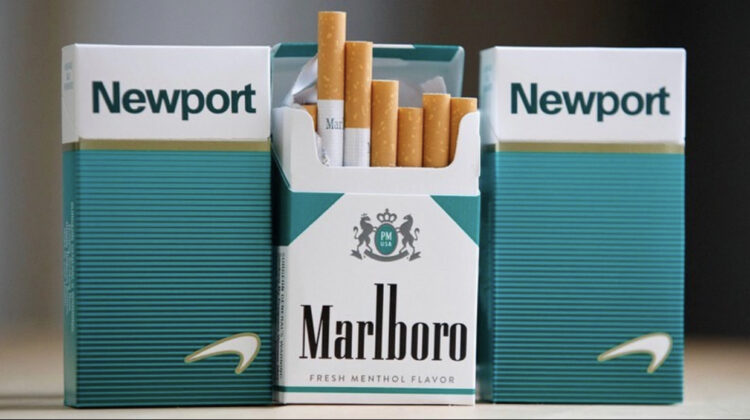The Food and Drug Administration proposed a ban on cigarettes and cigars that contain menthol on Thursday, prompting the federal agency to assist in reducing disease and death related to tobacco use. While the process may take years, the FDA believes the move could save the lives of many Black Americans who smoke menthol-flavored cigarettes.
“The proposed rules would help prevent children from becoming the next generation of smokers and help adult smokers quit,” said Health and Human Services Secretary Xavier Becerra. “Additionally, the proposed rules represent an important step to advance health equity by significantly reducing tobacco-related health disparities.”
Last year, BMJ conducted a study and determined that banning flavored tobacco products could lead to a 15 percent decline in smoking by 2026.
According to the Centers for Disease Control and Prevention, smoking is the leading cause of lung cancer in the U.S., with 80 to 90 percent of deaths linked to cigarette smoking. Additionally, menthol cigarettes were the third-highest in cigarette sales, with almost 19 million users. However, African Americans were more likely to use flavored tobacco products due to the excessive marketing in the community.
Several studies have shown that smoking menthol-flavored cigarettes could decrease by more than 15 percent in 40 years if they’re no longer available for purchase in the United States. Moreover, an estimated 324,000 to 654,000 deaths are attributed to cigarette smoking, and African Americans are among the 92,000 to 238,000 smoke-related deaths.
Eighty-five percent of African American smokers use menthol cigarettes, compared to 30 percent of white smokers. FDA Commissioner Janet Woodcock, M.D., said the move would help those disproportionately affected by the flavored tobacco products.
“Banning menthol—the last allowable flavor—in cigarettes and banning all flavors in cigars will help save lives, particularly among those disproportionately affected by these deadly products,” she said.
She continued, “With these actions, the FDA will help significantly reduce youth initiation, increase the chances of smoking cessation among current smokers, and address health disparities experienced by communities of color, low-income populations, and LGBTQ+ individuals, all of whom are far more likely to use these tobacco products.”
Earlier this week, the NAACP addressed the issue in a written statement to the FDA, encouraging the ban after the African American community had been wrongfully targeted for advertising purposes by well-known cigarette companies.
“This pattern of activity continues today with expanded marketing strategies like supporting and providing sponsorship funding for events, supporting various Black leaders with financial support, discounting menthol products in Black neighborhoods, and abundant advertising in stores frequented by Black communities,” read the statement. The civil rights organization also noted that it stopped receiving tobacco funding more than two decades ago.
According to an FDA report, African American smokers are less likely to quit smoking menthol-flavored cigarettes due to the cooling effect when inhaling the smoke. Dr. Andrea Villanti, associate professor in the Department of Health Behavior, Society and Policy at Rutgers School of Public Health and deputy director of the Center for Tobacco Studies, said the flavored products make it difficult for consumers to quit.
“It actually dampens any sort of respiratory response to smoke being an irritant. So it kind of makes the smoke go down easier,” she explained. “Especially for a young person or someone who hasn’t used the product before.”
She added, “[Menthol] helps people start. It makes it harder to quit.”
Multiple countries, including Canada, Brazil, Ethiopia, Turkey, and some U.S. states and municipalities, including Massachusetts and Washington, D.C., already have menthol bans in effect,” ABC News reported.
“Taking flavors off the market, overall, will prevent the initiation of another generation into becoming addicted to nicotine and lifelong customers of the tobacco industry,” said Robin Koval, CEO and president of Truth Initiative, a nonprofit organization dedicated to ending tobacco sales in the U.S. “Eliminating menthol cigarettes will have significant effects on health, especially for populations … who are most vulnerable: young people, people of color.”









